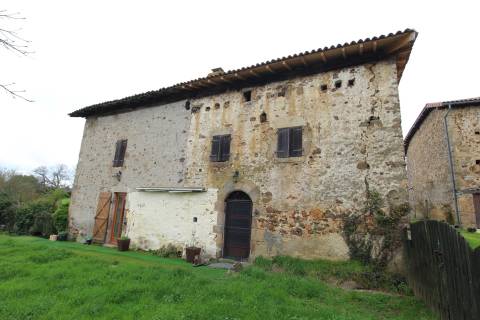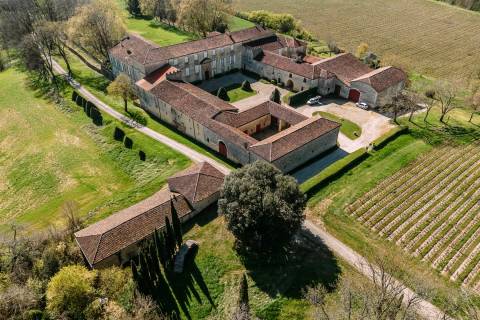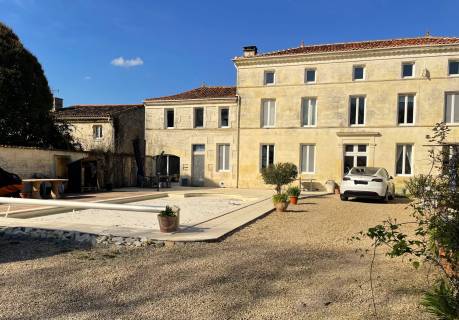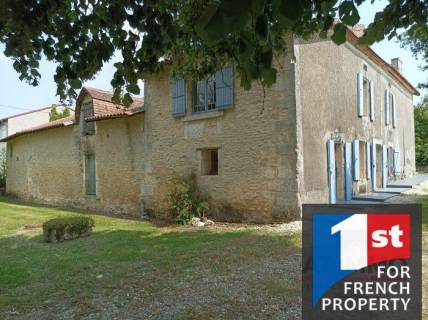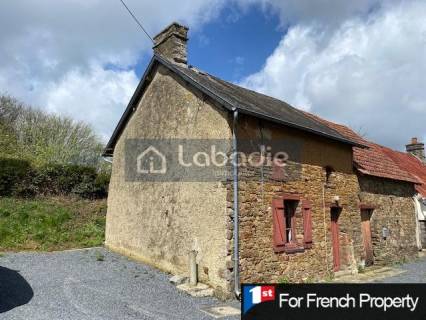Jul 042017
 If you’ve got your heart set on moving to France, but aren’t ready to retire yet, you’ll need to think about your experience and qualifications and the kind of work that might be open to you there. How complicated it might be to get a job in France in the post-Brexit world remains to be seen, but you needn’t let that deter you. Even if your French isn’t up to scratch, there are still possibilities, you just have to think strategically.
If you’ve got your heart set on moving to France, but aren’t ready to retire yet, you’ll need to think about your experience and qualifications and the kind of work that might be open to you there. How complicated it might be to get a job in France in the post-Brexit world remains to be seen, but you needn’t let that deter you. Even if your French isn’t up to scratch, there are still possibilities, you just have to think strategically.
It stands to reason that in the areas with a high proportion of international residents, there will be jobs to service those people and their communities – and these jobs won’t necessarily involve having to speak French. They cover a wide range of skillsets, from finance to property management or teaching. Outside of Paris, the most vibrant international community in France has to be in the Alpes-Maritimes, where the city of Antibes is a major hub for the yachting industry, and Sophia Antipolis is one of Europe’s largest technology parks, employing thousands.
But working life in France doesn’t have to be confined to Paris or the French Riviera. The rural areas of the Creuse and the Dordogne also have over one in ten non-resident, international home-owners.
Let’s explore some of the opportunities here:
Financial Sector
 With so many retired expats in France, the opportunities are there for those qualified to advise on pension transfers, savings and investments, inheritance and tax issues, as well as mortgages and currency trading. Language need not be an issue, and surprisingly, even in Parisian institutions, the conditions are very favourable. As one France-based financial consultant put it: “they seem more relaxed and less strict on the work hours, expecting you to have a good work/life balance, whereas in England they expect you to work through your lunches or be back as quickly as possible.”
With so many retired expats in France, the opportunities are there for those qualified to advise on pension transfers, savings and investments, inheritance and tax issues, as well as mortgages and currency trading. Language need not be an issue, and surprisingly, even in Parisian institutions, the conditions are very favourable. As one France-based financial consultant put it: “they seem more relaxed and less strict on the work hours, expecting you to have a good work/life balance, whereas in England they expect you to work through your lunches or be back as quickly as possible.”
Many international banks and financial advisors have offices in France, but there are plenty of independent advisors too, and it’s a job that’s possible to do from the comfort of your own home.
High-Tech Industries
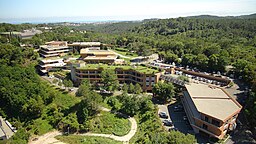 In the Alpes-Maritimes, the town of Sophia-Antipolis has become one of Europe’s leading technology parks, housing companies working in computing, electronics, pharmacology and biotechnology. There are also several institutes of higher learning there, and the whole area has become a major international community – ideal if you have experience in any of these sectors but speak little French.
In the Alpes-Maritimes, the town of Sophia-Antipolis has become one of Europe’s leading technology parks, housing companies working in computing, electronics, pharmacology and biotechnology. There are also several institutes of higher learning there, and the whole area has become a major international community – ideal if you have experience in any of these sectors but speak little French.
Real Estate
 There is always a lot going on in this sector, with some estate agencies employing freelancers on a commission-only basis – usually 20% of the 6-8% commission on the property’s sale price. Exclusivity is not the norm in France, however, so with many estate agents marketing the same property, this can be very competitive. Language skills will be helpful to attract other international buyers, such as the Germans, Dutch, Scandinavians and Russians.
There is always a lot going on in this sector, with some estate agencies employing freelancers on a commission-only basis – usually 20% of the 6-8% commission on the property’s sale price. Exclusivity is not the norm in France, however, so with many estate agents marketing the same property, this can be very competitive. Language skills will be helpful to attract other international buyers, such as the Germans, Dutch, Scandinavians and Russians.
Teaching
 For qualified teachers there’s plenty of scope, because where there are many expat professionals, there will be international schools for their children, with English-speaking teachers actively needed. Otherwise, teaching English to the French is always an opportunity, either privately or within the structure of a college. It’s even possible to work from home and take lessons via Skype, which would appeal to busy executives who just can’t get to set classes and need a more flexible timetable for their lessons.
For qualified teachers there’s plenty of scope, because where there are many expat professionals, there will be international schools for their children, with English-speaking teachers actively needed. Otherwise, teaching English to the French is always an opportunity, either privately or within the structure of a college. It’s even possible to work from home and take lessons via Skype, which would appeal to busy executives who just can’t get to set classes and need a more flexible timetable for their lessons.
Journalism
In the Alpes-Maritimes alone, there’s a wide choice of English-language newspapers and magazines, set up to cater for expat readers. If you’re a newshound or have good ideas for features, they’ll be open to new voices. And don’t forget all the websites set up specifically to offer expat advice on a wide range of issues – they all require new content to remain fresh and relevant.
Advertising Sales
Likewise, all these international media outlets are looking to gain advertising revenue, and if handling sales and dealing with businesses in all sectors appeals to you, there’s plenty of potential. Many of these jobs will be commission-only, or might offer a small basic salary with commission on top.
Property Management
This is a sector that could apply throughout France, even in the most rural of areas, where people have bought holiday homes they don’t live in year round. Many will require someone to keep an eye on their properties, dealing with any emergencies that may arise, and making sure the garden and pool are tended to. Some owners might have building projects that require managing in their absence. If they let their properties for holiday rentals, during the tourist season they may well require someone to manage the changeovers, overseeing the cleaners and doing the meet-and-greet service for new holidaymakers.
The Yachting Industry
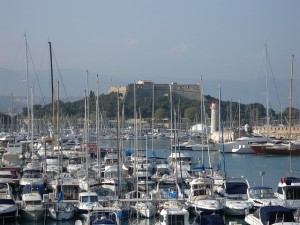 France is a haven for yachties, with the French Riviera, particularly Antibes, being a major hub for international super-yachts. The season typically runs from April to October. The minimum required qualification for a crew-member is an STCW basic safety training course, which consists of personal survival techniques, fire-fighting and prevention, elementary first aid, personal safety and social responsibility, and either proficiency in security awareness or designated security duties.
France is a haven for yachties, with the French Riviera, particularly Antibes, being a major hub for international super-yachts. The season typically runs from April to October. The minimum required qualification for a crew-member is an STCW basic safety training course, which consists of personal survival techniques, fire-fighting and prevention, elementary first aid, personal safety and social responsibility, and either proficiency in security awareness or designated security duties.
Additional courses include the ENG1 Medical Certificate, Power Boat Level 2, a two-day practical course, Steward/Stewardess courses, and Wine and Food Appreciation courses.
There are agencies set up to find skippers, crew-members, engineers, and stewards and stewardesses for yachts of all sizes, and then there are all the peripheral needs of the yacht industry, such as yacht brokerage, maintenance, compliance and safety management, refitting, internet and communications systems, security, catering – the list goes on.
For the super-yachts, a variety of other part-time positions may be required, from nannies and baby-sitters, to yoga instructors, bodyguards and beauticians.
Adventure Sports and Tourism
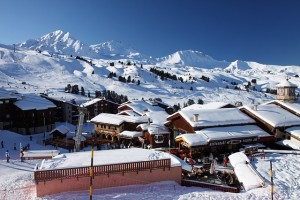 These jobs might not be full time, but if you’re willing to move around, it’s possible to combine a winter at the ski resorts in the Alps, where ski instructors and chalet hosts are always in demand, with summer in one of France’s numerous tourist hotspots.
These jobs might not be full time, but if you’re willing to move around, it’s possible to combine a winter at the ski resorts in the Alps, where ski instructors and chalet hosts are always in demand, with summer in one of France’s numerous tourist hotspots.
Many of France’s beautiful rivers – the Ardèche, the Gardon, Drôme, Sorgue and Dordogne – have become major bases for water-sports enthusiasts, meaning that canoe or kayak instructors are always needed. If you’re a keen surfer, Biarritz is the place to go, having become home to a large surfing community, with surf instructors required.
Away from the water, for cycling enthusiasts there’s scope here to guide parties around particular areas, for example following the route of an étap, or stage, of the Tour de France.
Au Pairs
Many busy families need a helping hand for their children, and often they prefer someone who will speak English with them. This is an ideal short term job, usually for people between 18 – 30 years old. In addition to the main duty of child-care, au pairs may be expected to take on light housework and baby-sitting. There are many online agencies dedicated to matching the right employee with the right family.
And finally, don’t forget Monaco!
Not strictly in France, but it’s possible to live in France and commute to Monaco, where there are numerous international banks, law firms, media outlets, events companies – the pickings are rich indeed. Then don’t forget all the wealthy international residents there, and all the potential jobs that have evolved around them, from interior designers to personal fitness training, catering, security and general assistance work.
Regulations
 Non-EU members have to obtain a Carte de Séjour if they wish to stay in France for longer than three months. Under French domestic rules, you become a French tax resident the day after you arrive in France, providing you intend to stay indefinitely.
Non-EU members have to obtain a Carte de Séjour if they wish to stay in France for longer than three months. Under French domestic rules, you become a French tax resident the day after you arrive in France, providing you intend to stay indefinitely.
There are various French employment contracts, but the following are most relevant to foreign workers:
CDI, or Contrat à Durée Indéterminée
CDD, or Contrat à Durée Déterminée
The CDI is a permanent job contract with no end date, usually beginning with a two or three month trial period. Either party may decide to end the contract, with a notice period to adhere to.
The CDD is a fixed term contract with a specific duration, usually between 9 – 24 months. After this time, either the employment ceases, or is transferred to a CDI. This type of contract can be used for seasonal work, maternity or sickness cover, state-funded contracts or to fill temporary staffing needs.
If you are working through an agency, you may receive a Contrat de Travail Temporaire ou d’Intérim, which is almost the same as a CDD but allows for three parties – the employer, employee and the agency. In this case, the employee is hired and paid by the agency. In most cases the contract may last no longer than 18 months, with some exceptions.
Where to Start?
If you’re keen to start looking and plan your new life in France, there are numerous expat websites offering information and jobs listings, as well as groups on social media. Networking is all important, and once you’ve arrived at your chosen destination, it’s a good idea to join groups and societies, to mix with both the French and expat community, and to keep your ears on the ground for new opportunities.
Living and working in France might seem like a dream when you’re trapped in a desk job in rainy Britain, but it’s a dream that really is possible, and one that might just change your life for ever.
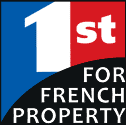

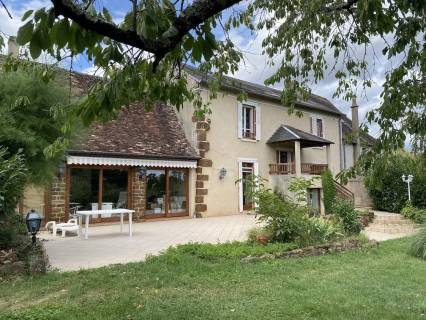

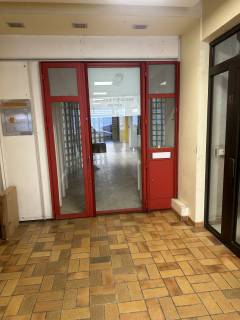
.jpg)
